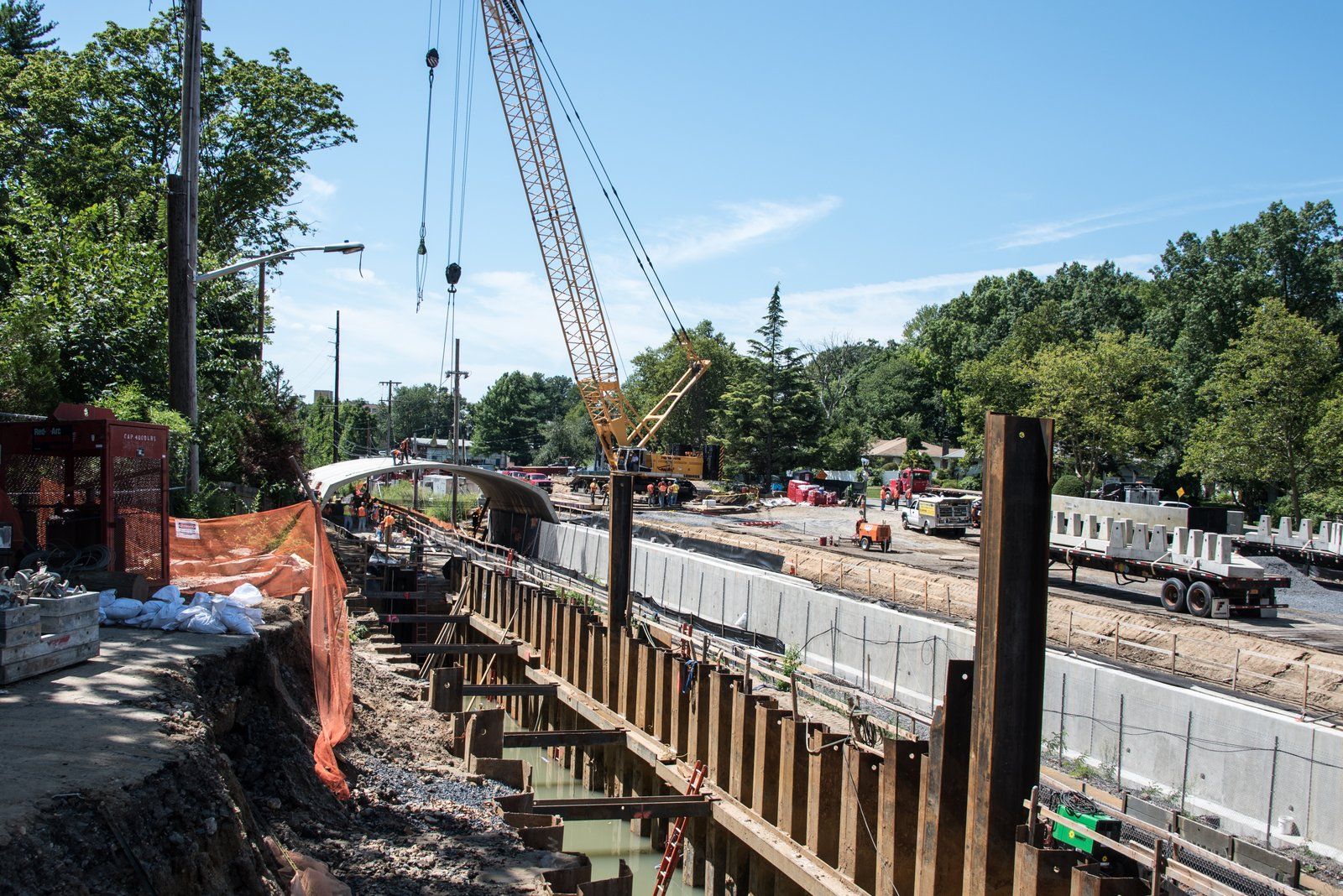The Metropolitan Transportation Authority will halt Long Island Rail Road train service this weekend between Great Neck and Port Washington beginning early Saturday morning into early Monday morning to continue construction of the new Colonial Road Bridge in the Village of Thomaston.
Service along the Port Washington line will be provided by buses that will run every hour — a reduction in the usual train schedule, which runs every half hour, said MTA LIRR spokesman Salvatore Arena.
Buses will begin to replace trains at 12:04 a.m. Saturday morning until 3:15 a.m. Monday morning.
Passengers traveling westbound from the Port Washington, Plandome, or Manhasset stations will board buses or vans up to 25 minutes earlier than normal for Great Neck where normal train service will resume, according to the MTA.
Passengers traveling eastbound to the Port Washington, Plandome, or Manhasset stations will board buses or vans at Great Neck, arriving at their destination up to 25 minutes later, according to the MTA.
In August, LIRR service between Great Neck and Port Washington was stopped as 41 pre-cast concrete arch units were installed to begin the $45 million Colonial Road Improvement project.
Village of Thomaston Mayor Steve Weinberg said this will be the last weekend the MTA will need to complete the structural pre-cast concrete supports that make up the bridge and a tunnel through which trains will travel beneath the bridge.
But, Weinberg said, the MTA still needs to build the road on top of the bridge.
According to the MTA, the new bridge will open for traffic next spring.
The MTA has said the replacement of the bridge is essential to the East Side Access project, which will bring the LIRR straight into Grand Central Station in Manhattan. The project will cut the travel time of commuters who work on Manhattan’s east side by 20 to 30 minutes when completed.
According to the MTA, they will also be making track-level drainage improvements, building a retaining wall and extending an existing pocket track used to turn trains around.
The project began in March with the closing of the bridge and continued with its demolition in June.
The project is scheduled to be completed by the end of 2018.



